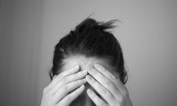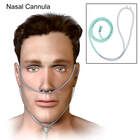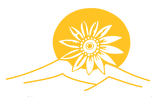 By: Jadon Webb, MD, PhD If you need help for depression, or are wondering how to help a friend with depression, you first want to know what all of your options are. Most of us know about psychotherapy and medications. These are indeed great things to help with depression, but there are many other types of natural treatments worth considering. One of them is photons (light!). We’ve known for centuries that many people tend to get more depressed in the winter when things are darker (seasonal affective disorder), and we’ve known for decades that administering bright, white light in the morning can help with depression. What surprised us is that this treatment also works in people who have regular major depression, not just in people with seasonal affective. We love using natural treatment methods whenever possible, and a review paper from 2019 brought us a happy surprise: bright light therapy works as well as antidepressant medications used alone. Amazing! Even better, when bright light is combined with antidepressants, they work even better than either does alone. This is huge news! Nature provides us with powerful tools to help with our mood and mental health. We should use them whenever possible. If you need help dealing with depression, talk to your provider about adding in bright light therapy. It may help you feel better, faster.
0 Comments
 By: Shannon Keane, NP-C At Bloom, we are interested in natural supplements that may help for anxiety. There are certain supplements that have some scientific evidence supporting their use! If you are looking for how to reduce anxiety, here are some of our favorites to consider. As always, if you are seeking help to calm anxiety attacks, and are interested in natural supplements, be sure to check-in with your provider at Bloom Mental Health to see if these supplements are safe and appropriate to take! 1) Magnesium Magnesium is an essential mineral commonly found in dark green vegetables, nuts, seeds, fiber-rich whole grains and chocolate. It is well known that American’s dietary intake of Magnesium is inadequate. Magnesium has an important role in mental and brain health. Several studies have demonstrated Magnesium’s effectiveness on reducing anxiety. 2) Phosphatidylserine Phosphatidylserine is a phospholipid that is critical for brain health. This fatty substance decreases cortisol in individuals that produce excess amounts of stress hormones. People with higher levels of circulating stress hormones tend to experience higher levels of anxiety. 3) Valerian Root Valerian is a plant that can be found in Europe and Asia. This flowering plant increases the activity of GABA and can reduce anxiety levels. It has originally been researched to help with insomnia, but it may also help people feel calmer. 4) Rhodiola This herb can be found in Asia and has been used for centuries to help people lower stress levels. It lowers anxiety and improves depressive symptoms by regulating neurotransmitter activity, and managing inflammation. Increased inflammatory markers have been measured in people suffering from depression and anxiety disorders. 5) Ashwagandha This adaptogen can promote homeostasis within the body and reduce anxiety. One study performed on mice revealed that this herb had a significant effect on lowering stress and anxiety levels. ***Before starting any supplements, check in with your provider at Bloom Mental Health to see if these supplements are safe and appropriate to take***  By: Jadon Webb, MD, PhD Many cases of mental illness are caused by underlying health conditions. When getting help, it is important to always make sure that your body is healthy. One key part of our bodies that is sometimes overlooked is the level of iron in our blood. Iron is a critical component of hemoglobin, which transports oxygen from our lungs to every cell in the body. If you don't have enough iron, you might have symptoms of fatigue, anxiety, and more severe depression. We have known about the relationship of iron and good mental health for decades. A study took a closer look at the association between iron levels and various psychiatric disorders, including depressive disorder, bipolar disorder, anxiety disorder, autism spectrum disorder, ADHD (attention deficit hyperactivity disorder), and developmental delays. From this study, it was clear that low iron levels are associated with these severe conditions, and this relationship was especially strong in females. Overall, the risk of most conditions such as depressive disorder and anxiety disorder was double in those with low iron. We still do not know for certain how giving iron supplementation to someone with anemia will, for example, help with depression, but iron deficiency associates with a number of physical symptoms, and deserves to be treated! When you are getting an assessment for mental health concerns, consider examining your whole health, and include looking at iron! By: Jadon Webb, M.D., Ph.D.
Depersonalization-derealization disorder (DP/DR) is a group of symptoms and feelings in which the person feels disconnected from themselves or the outside world. Those suffering from it can feel frightened and wonder if they are “going crazy.” This fear can make it harder and more embarrassing to want to reach out and get help. It is also a lonely illness, and it can seem like you are one of the only people experiencing this. But DP/DR is actually very common. A survey of the general population in 2020 found that almost 9% were experiencing these symptoms, and were bothered by it. DP/DR is extremely common - every bit as much as well-known troubles such as depression and anxiety. Yet, because the symptoms are often hard to explain, and can sound like more frightening disorders (e.g. psychosis), it seems to often get ignored. This is a shame, as many of the underlying causes are very treatable! Many cases of DP/DR are caused by stress, burnout, anxiety, depression, borderline personality, trauma, and other very treatable problems. If you are experiencing feelings of numbness, feel like you are in a dream-like state, or feel unreal, consider getting an evaluation. It may be your body’s way of trying to cope with stress or other problems that can be helped.  By: Jadon Webb, M.D., Ph.D. Botulinum toxin (Botox®) has strong research evidence as an effective treatment for depression. It appears to also be effective, perhaps even more so, in people who suffer from both depression and migraine headaches according to a 2021 meta-analysis. Botulinum toxin is generally very safe, well-tolerated, and can be used in conjunction with many other psychiatric medications. While we do not specifically treat migraines in this practice, if a client needs help with depression and also happens to have migraines, botulinum treatment may incidentally help this, and be worth considering. By: Jadon Webb, M.D., Ph.D.
Ketamine appears to be one of the very effective things to help with depression. A recent scientific publication showed it seems to be especially effective in younger people, including adolescents. This finding that it works extremely well in younger people might raise concerns for those with severe depression who are older. Is ketamine still an effective treatment for them? A new study closely looked at this, and examined whether age changed how effective ketamine was at treating severe depression. If you are on the older side of things, the results are very encouraging! Ketamine infusions did help fight severe depression symptoms faster in those who are younger. The patients in this study were given a total of 6 ketamine infusions (a normal protocol similar to what we use), and more younger people experienced a positive response by infusion #4 of 6 than those who were older. This better response early on might explain why ketamine seemed to work better in other studies that gave fewer infusions (some studies only gave 1 infusion). However…. by the end of treatment (infusion #6), both young and old benefited equally. Younger people responded faster, but by the end of the treatment, everyone did equally well. This, again, is very good news, and means the treatment can be successfully given over a large age range. If you need help dealing with depression, especially severe depression that doesn’t respond to usual treatments, ketamine may be worth considering, no matter your age.  By: Jadon Webb, M.D., Ph.D. It is always a win to find safe, natural things to help with depression. Especially when other treatments don’t work or cause too many side effects. A new study found that breathing a little extra oxygen at night may be an effective treatment. This is so important since oxygen is usually very safe, and could potentially be combined with other treatments. In this study, subjects breathed 35% oxygen (instead of the usual 20% found in normal air) at night for 4 weeks. The oxygen can be produced from a concentrator and be given easily through a nasal cannula that can be taken home. We are very interested in the potential of oxygen as one of the new, safe treatments of depression, and are starting to offer it as an adjunctive treatment in certain cases. If you are interested in innovative help for depression, mention it to our providers. Meantime, high dose oxygen offers a totally unique approach to this complicated disorder, and we are thrilled to see these positive results make it to publication!  By: Jadon Webb, M.D., Ph.D. Schizophrenia can be a hard illness to treat. The main medications used are the antipsychotics, which can be very effective but don't work for everyone, and can have some significant side effects. They also usually don't work very well for improving brain fog, poor motivation, and other cognitive problems that very commonly occur in psychosis. But there is hope of new treatments that may be able to help with this. N-Acetylcysteine (NAC) is a powerful antioxidant related to the natural amino acid cysteine. It has been used for decades as an antidote to medication overdose and to break up thick mucus in people having trouble breathing. It also has building evidence for helping with schizophrenia symptoms. Most importantly, NAC may help improve so-called “negative symptoms” of schizophrenia such as low motivation, lack of desire to socialize, and inability to feel good emotions. It also seems to improve short term memory, which can be greatly impaired in psychosis. Most conventional antipsychotic medications do not improve negative symptoms of psychosis or cognitive impairment, even though these symptoms can sometimes be the most difficult part of having schizophrenia. Being able to treat these symptoms is a wonderful thing! NAC is also cheap and usually safe even at high doses. The most common side effect is nausea and upset stomach. Many patients who try NAC also notice an improvement in mood, and it may also be one of the useful treatments for depression. NAC is not an FDA-approved treatment of schizophrenia and so this is off-label, but there have been multiple academic studies supporting its use. Schizophrenia can be a challenge to fully treat, but there is hope! New ideas like this are giving more treatment options than ever before.  By: Jadon Webb, M.D., Ph.D. Major depressive disorder can sometimes be difficult to treat with regular medications. if someone has tried several medications without success, they are generally thought to have treatment-resistant depression. Unfortunately, treatment-resistant depression often does not respond to the typical treatments of depression and more creative approaches are often needed. It goes without saying that anyone with severe depression that is treatment-resistant should be in therapy, should have a complete medical workup, and should have their sleep, diet, exercise, and socialization assessed. If no obvious correctable cause for the depression is found, it is sometimes necessary to consider stronger treatments to help with depression, especially if there are any signs of hopelessness for suicidal thinking. Ketamine Is a well-researched treatment for treatment-resistant depression and complex PTSD in adults. But can it help with depression in adolescents? And is it ever an appropriate treatment to consider in this age group? A randomized study out of Yale gave a single dose of ketamine to adolescents age 13-17 who had major depression and had failed other treatments for depression (oral medications). The results are quite impressive. A single infusion of ketamine helped 76% of the patients, compared to only 35% that received an active placebo. Even more interesting is that the effects seemed to last for weeks just from this one infusion (it is common to do 6-8 infusions to produce a more sustained effect). The treatment was also noted to be safe with no serious adverse effects in a recent scientific review. The data on ketamine as one of the treatments of depression is still relatively new, but so far it appears that ketamine is every bit as effective (perhaps even more effective) in treating adolescent major depressive disorder compared to in adults. And again, it appears to be relatively safe, especially when considering the alternative (a patient with severe depression that cannot get relief). If you are wondering how to fight depression, and conventional medications, therapy, and lifestyle interventions have not been sufficient, ketamine may be worth considering. By Shannon Keane, NP-C
1. Prepare
2. Create your Playlist
3. Journal
4. Integrate
|
about the authorSJadon Webb, M.D., Ph.D.
Owner Bloom Mental Health Shannon Keane,
MSN, FNP-C, PMHNP-BC Clinical Director Disclaimer: this blog is NOT intended as medical advice and does not imply any kind of specific guidance or treatment recommendations, and should NOT be used to guide a treatment protocol. (read full disclaimer)
Afton Williamson,
DNP, MSN, FNP-BC Family Nurse Practitioner |
Location |
|



